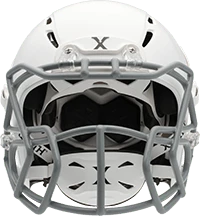
Football season is officially underway. Our own Atlanta Falcons had their first pre-season game against the Miami Dolphins last week and Georgia high school teams officially start week one of their schedules next week. Players have worked hard through spring and summer, so both they and fans of the game are excited that the season is officially underway.
Along with the excitement of the sport, it is also necessary to keep football safety concerns in mind – one of the most prevalent being that of concussions, which has been popular in the news recently. Concussions are most commonly associated with the NFL, but in fact occur at all levels of play. From little league to professional football, concussions are a serious issue. Some statistics show that high school players are twice as likely to sustain a concussion as college players.
One of the issues surrounding concussions is the lack of obvious symptoms often times present. A player doesn’t necessarily have to be knocked out to receive a concussion. A single hit can lead to a concussion without anyone realizing it. Over time, the continuous head impacts that football players experience can lead to serious consequences, such as concussions. Ultimately, they can lead to short- and long-term changes in brain function, as well as in serious circumstances, death.
An athlete’s well-being should be the most important aspect of sports, especially at younger ages where adults should look out for them. Not only should players be educated about the signs of concussions, but coaches, officials, and the training staff should be well-educated as well. Players that shows signs of dizziness, confusion, headaches, or issues with balancing should immediately be removed from participation. Until they are medically cleared by a health-care professional, they shouldn’t be allowed to return to the game. Ensuring compliance with regulations and guidelines such as these is the responsibility of the head coach and school administration. Not only are they responsible for being aware of concussion-like symptoms, but they should also equip players with proper functioning equipment to minimize the chances of concussions. If a player shows concussion-like symptoms and continues to play, they are at risk of further injury. The state of Georgia requires all coaches to participate in an online course on concussion management that is organized by the NFHS (National Federation of High Schools).
While sports can serve as an important recreation to adolescents, it is imperative that their safety remains the top priority. Concussions are serious, and science has continued to prove their significance in sports. As football is now underway, be mindful of potential injuries and help keep athletes safe. For more information on concussions and the responsibilities of the school, please visit the Georgia High School Association website.
Categories: Personal Injury, Safety Tips




